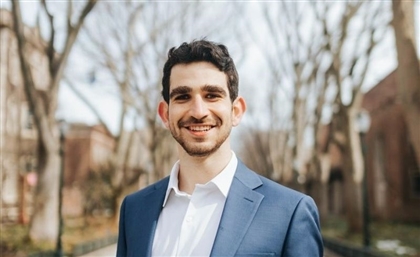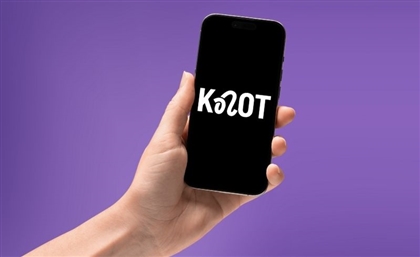Inside Dubai’s Plan to Become the World’s First Blockchain-Powered City
Dubai announced its goal of becoming the world’s first fully blockchain-operated city by 2020. But what is blockchain, and what role can startups play? Peter Cherukuri, president of the leading global incubator 1776, explains it all - including how Harry Potter can help us understand blockchain.

It’s a sprawling desert wonderland complete with a futuristic skyline, artificial island chains, surreal and incomparably luxurious hotels, even a snowy ski resort - Dubai is a city famous for its relationship with technology and has a reputation for being the biggest, the best, always the most advanced. The city is an ultramodern haven for tourists and businesses alike, with its own rules and elevated standards for excellence.
In October 2016, Sheikh Hamdan bin Mohammed bin Rashid Al Maktoum, Crown Prince of Dubai, announced his ambitious vision for the city’s future: that all government documents would be stored using blockchain technology by the year 2020, and that most of its official business would be supported by blockhain-based systems.
Following the announcement, Smart Dubai Office (SDO), the government initiative leading the city’s modernisation agenda, partnered with international startup incubator 1776 to launch a blockchain-oriented challenge open to entrepreneurs from all over the globe. “Dubai really is the first city that we’ve come across where from the top, there is an absolute commitment to understanding the role that startups can play towards achieving its innovation goals,” says Peter Cherukuri, President and Chief Innovation Officer of 1776, explaining why Dubai specifically had a powerful draw on the organisation.

Peter Cherukuri, President and Chief Innovation Officer of 1776
The US-based incubator, created in Washington DC in 2013, has seen over 700 companies participated in its programmes and now, in cooperation with SDO, issued a call for startups using blockchain technology to pitch their products to investors. The search for blockchain innovators is part of SDO’s larger goal of making Dubai "the happiest city on Earth,” and its first step towards its ultimate technological overhaul. As we sit to unveil how startups are swiftly crafting the future of the city that breaks all records, Cherukuri disentangles why blockchain matters - and why the government of Dubai wants to migrate all of its services to a new system.
What is Blockchain, exactly?
For many people who have actually heard the term “blockchain,” the word is synonymous with Bitcoin, the disruptive peer-to-peer cryptocurrency that first hit digital wallets back in 2009. Blockchain, originally conceptualised by the creator of Bitcoin in 2008, is a database that records transactions and can be triggered to initiate new transactions. What makes this database unique is the fact that it is distributed publicly rather than held on one central server – it is continuously updated through a peer-to-peer network, with security elements to preserve the privacy and integrity of the data. The blockchain ledger is thus decentralised and its data is authenticated by mass consensus of the network. In order to successfully tamper with the blockchain, all the nodes would have to be altered, an absurdly impractical feat.
Peter Cherukuri's insights demystify the inner workings of blockchain. “Have you ever seen or read Harry Potter?” he asks.
If you think the above concept sounds intimidating, you’re not alone. But Peter Cherukuri's insights demystify the inner workings of blockchain. “Have you ever seen or read Harry Potter?” he asks me. Like most members of my generation, that’s a solid yes. Cherukuri then dives into the most millennial-friendly explanation of blockchain I’ve ever heard. “The focus of the Harry Potter is the horcruxes, which contain the identity of Voldemort – his soul is spread out across all these different objects. If Harry and his friends can get to the objects first and destroy them, then they win, but if they don’t, Voldemort will be reassembled.” What horcruxes have in common with the blockchain is that they’re a decentralised means of storing information. “Each of these horcruxes serves the purpose of a node of a blockchain and the information is spread out across all these different objects,” he elucidates. He notes that blockchain experts out there may groan at his analogy, but it’s a remarkably user-friendly explanation of a distributed ledger.
Although blockchain is part of the foundational technology supporting Bitcoin, its principles can be extended to other forms of record-keeping. Its financial implications are powerful – blockchain solves the bothersome issue of double-spending, for instance – but the SDO Blockchain Challenge encouraged startups with non-financial implementations of the technology to step forward as well. It’s a paradigm of information storage that doesn’t rely on a central institution to manage its content, which has a broad range of applications. “The idea of a distributed ledger is disrupting the role that institutions currently play in allowing certain types of transactions,” says Cherukuri. In addition to streamlining government services, Dubai hopes that blockchain will continue to cement its standing as one of the world’s business capitals through innovation and globally accessible technology.

The judging panel at the Smart Dubai Office Blockchain Challenge
The SDO Blockchain Challenge
Last May, Smart Dubai Office and global incubator 1776 crafted an event designed to attract the world’s most talented startups using blockchain principles, hoping to find a few whose services would be innovative enough to become part of Dubai’s changing infrastructure. Out of a flurry of international entries, 21 exemplary finalists from 16 different countries were chosen to attend the competition in Dubai. Each of them received a month of 1776 membership, which entitled them to mentorship and training, and got to pitch their startups to an audience of investors, venture capitalists, foreign dignitaries, and government officials.
Winning startups The Sun Exchange, Everledger, and Educhain were awarded cash prizes of $20,000, $15,000, and $10,000 respectively by 1776. Winning startups also received three months of mentorship and promotion from the organisation, an internationally respected incubator. In addition, each winner also had meetings with potential new clients in Dubai after the competition. Cherukuri is quick to point out that the definition of “winner” isn’t as restrictive as it sounds. “The money is valuable, but all these startups knew that the true value of coming to Dubai was to have a customer and have a real proof of concept of their value proposition.” Three runner ups were also selected for special recognition and together, the six top companies have been introduced to Dubai’s ecosystem of investors and clients.
None of the three top winners used blockchain within a solely financial context, which illustrates the mutability the technology has as a foundation for multiple different industries.
None of the three top winners used blockchain within a solely financial context, which illustrates the mutability the technology has as a foundation for multiple different industries. Coming in the third place, Canadian Educhain is a credentials verification system from Vancouver, Canada. The startup Educhain uses blockchain fundamentals to store and authenticate an individual’s educational credentials, which can then be consulted by prospective employers or institutions. “LinkedIn profiles can be completely fabricated without any verification, or prospective employers can run a background check, which takes time and money to process,” says Cherukuri, “so how can you allow that individual to be empowered by who they share their credentials with? Educhain creates a chain of authenticity around an individual’s credentials from higher education.” Using blockchain to store educational records eliminates the hassle of transcript fees, waiting times, or even an individual being forced to physically return to an institution to pick up authenticated credentials. Its appeal is readily apparent, particularly as it becomes increasingly common for people to move internationally for school or work.

The 1776 offices in Dubai.
Scoring second place is Everledger, a documentation system for fine goods such as art and jewellery. Based in London, the company simplifies the complicated process of authenticating the credentials and movements of luxury goods. Major auction houses or art collectors are typically burdened with the onerous task of verifying a piece’s origins. The diamond industry currently uses Kimberley Process paperwork to track and verify the provenance and movements of diamonds around the globe, but the system is heavily scrutinised for its vulnerability to fraud. “Blockchain provides another form of fingerprint across the entire supply chain of the history of a diamond or piece of art. Right now, it’s very paper driven, intensely open to forgery, but the Everledger supply chain documentation prevents that,” Cherukuri comments.
The SDO Blockchain Challenge’s grand prize winner is the inspired team of entrepreneurs hailing from Cape Town, South Africa. The Sun Exchange sells solar cells to buyers who then lease them to hospitals, factories, and other users in developing countries, but the cells come with an unusual feature: surplus solar energy collected can be traded to other users or converted to passive rental income for its owner. “Blockchain technology allows for the authentication necessary to create a peer-to-peer marketplace without the need for a separate financial institution,” remarks Cherukuri. He adds that “customers are empowered by this solar cell technology to optimize what they want in terms of energy or money from the source, without needing to go through a separate utility.” He cites the global Blockchain Challenge as the vehicle for 1776’s discovery of The Sun Exchange, nothing that they would have likely encountered otherwise.
Dubai is one of the few cities in the world that shares 1776’s belief that startups aren’t investment vehicles… they’re discovery vehicles.
Although the program was created specifically to modernise the city of Dubai, the call for startups from around the world opened the floor up to entrepreneurs who were creating solutions for their home communities, but had the potential to enrich Dubai as well. “Dubai is one of the few cities in the world that shares 1776’s belief that startups aren’t investment vehicles… they’re discovery vehicles. Startups have become a new form of research and development for corporations, institutions, and governments to understand how to harness new technologies. Dubai is genuinely committed to ‘walking the walk’ in terms of engaging the startup community in their innovation agenda.”
Main image credit: Creative Commons.
Article images courtesy of 1776.
Trending This Month
-
Jan 19, 2026




















